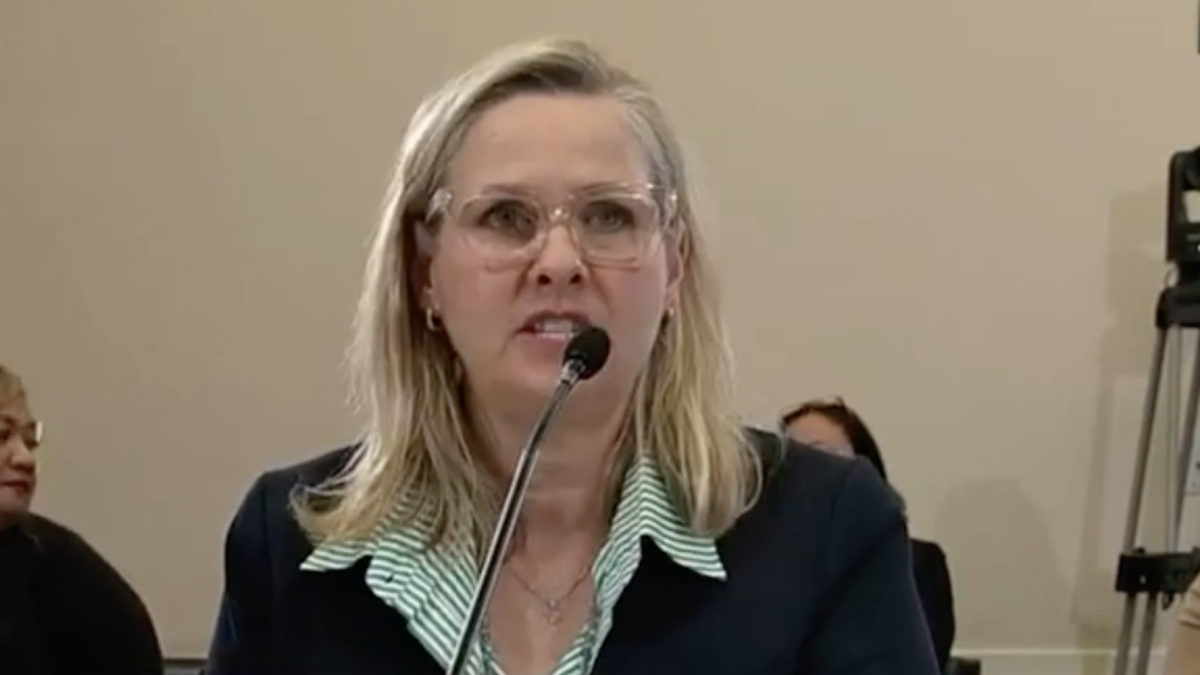On Tuesday, the Supreme Court ruled the Trump-era suspension of entry at the Mexico border must remain in place while the high court considers an appeal filed by 19 states that sought to intervene in the case to defend the policy. The order in Arizona v. Mayorkas prompted cheers from Americans frustrated with the Biden Administration’s failure to defend our country’s borders. But it is not the justices’ job to make or enforce immigration policy, and conservatives applauding the stay for that reason should re-think their response.
And yet, there is a legitimate reason to celebrate the Supreme Court’s decision to hear the appeal in Arizona v. Mayorkas, as it provides the high court the vehicle to end the abusive use of friendly settlement agreements to sidestep the political or administrative process.
In response to Covid-19, in March 2020, the Center for Disease Control and Prevention (CDC), issued a regulation immediately suspending entry at Canadian or Mexican ports of entry of individuals lacking proper travel documents or whose entry would otherwise be illegal. Informally called the “Title 42 system,” after the title of the United States Code that authorized the CDC to suspend admission into the country to prevent the spread of a communicable disease, the rules established in March 2020 were extended several times, with the final rule issued on Sept. 11, 2020.
Aliens subject to expulsion from the country under Title 42 filed suit in Huisha-Huisha v. Mayorkas in January of 2021 in a federal court in D.C., alleging the Trump Administration’s CDC expulsion rules violated various federal statutes. While the Huisha-Huisha case was pending, in April 2022, the CDC, now under the Biden Administration, entered an order terminating its previous Title 42 orders. In response, a coalition of states filed suit against the Biden Administration in a federal court in Louisiana, alleging the order terminating the Title 42 system violated the Administrative Procedure Act (APA) because the CDC issued the rule without the required notice and comment period, and also because the rule was arbitrary and capricious.
The states’ lawsuit argued that the CDC’s termination order was “‘plainly at war with other policies of the Biden Administration,’ such as refusing to lift the mask mandate on airline travelers, refusing to repeal vaccination mandates, and insisting on discharging members of the military who sought religious exemptions from those mandates.”
The states also argued the “CDC utterly failed to consider the consequences of the Termination Order on the States, which even Biden Administration officials acknowledged would lead to an ‘influx’ of migrants, inflicting a ‘surge on top of a surge’ that would irreparably harm the States.”
A federal judge in the Louisiana case concluded the Biden Administration violated the notice-and-comment rulemaking requirements of the ADA and entered a preliminary injunction preventing the CDC’s termination order of Title 42 from going into effect. The Biden Administration filed an appeal of the Louisiana district court’s decision with the Fifth Circuit Court of Appeals.
Three months later, on November 15, 2022, in Huisha-Huisha v. Mayorkas, the federal court in D.C. ruled in favor of the plaintiffs in their challenge to the Trump Administration’s Title 42 system. Specifically, the D.C. federal court declared the regulations and all decisions issued by the CDC and the U.S. Department of Health and Human Services suspending the right of entry under Title 42 were “arbitrary and capricious” in violation of the APA.
Within hours of the federal court in D.C. declaring invalid the Trump Administration’s Title 42 system, the Biden Administration filed an “Unopposed Emergency Motion for Temporary Stay,” seeking a temporary delay in ending the Title 42 system to allow the federal government “to resolve resource and logistical issues” related to the ending of the Title 42 order. The court granted that motion, staying its decision striking Title 42 until midnight on December 21, 2022.
The Biden Administration then turned to the Louisiana court, notifying the judge who had frozen the CDC’s newly adopted rule terminating the Title 42 system that the federal court in D.C. had struck the Title 42 system. Thus, come December 21, 2020, the Biden Administration stressed, there will “ be no legal authority for the government to continue to enforce the Title 42 policy.” In other words, it no longer mattered whether the Biden Administration’s CDC properly terminated the Title 42 system because a federal court had declared the Title 42 system illegal.
At that point, fifteen states, led by Arizona, filed a motion in the D.C. federal court in Huisha-Huisha v. Mayorkas seeking to intervene in the case as an interested party. Four additional states joined the motion soon after, with the states all requesting permission from the court to enter the case to defend the legality of the Title 42 system, as the Biden Administration appeared unwilling to defend the earlier rules to effectuate a termination of the Title 42 system —something it had tried to do by regulation but that was enjoined by the Louisiana federal court.
After the states filed the Motion to Intervene, the Biden Administration filed an appeal in the Huisha-Huisha case to the D.C. Circuit Court, leading the states to request permission to intervene from the federal appellate court. The D.C. Circuit denied the state’s leave to intervene, which prompted the 19 states to seek a stay from the Supreme Court of the trial court’s order in Huisha-Huisha striking the Title 42 system. Following a temporary stay granted by Chief Justice John Roberts, the Supreme Court, in a 5-4 decision, agreed to hear the state’s appeal of the D.C. Circuit’s denial of its Motion to Intervene. The Supreme Court further held the lower court’s decision striking the Title 42 system could not take effect until the high court resolved the issue of intervention, which would be done on an expeditated basis with a hearing to proceed during the February 2023 argument session.
The four justices dissenting from the Supreme Court’s stay included the three liberal justices, Justices Sotomayor, Kagan, and Jackson, joined by Justice Gorsuch. And in a brief two-page dissent, joined by Justice Jackson, Justice Gorsuch explained his opposition to the stay and the decision to take the appeal.
“Reasonable minds can disagree about the merits of the D. C. Circuit’s intervention ruling,” Justice Gorsuch wrote, before stressing “that case-specific decision is not of special importance in its own right and would not normally warrant expedited review.” Rather, “the D. C. Circuit’s intervention ruling takes on whatever salience it has only because of its presence in a larger underlying dispute about the Title 42 orders.”
But, even then, “it is unclear what we might accomplish,” Justice Gorsuch added. “Even if at the end of it all we find that the States are permitted to intervene, and even if the States manage on remand to demonstrate that the Title 42 orders were lawfully adopted, the emergency on which those orders were premised has long since lapsed.”
“And it is hardly obvious why we should rush in to review a ruling on a motion to intervene in a case concerning emergency decrees that have outlived their shelf life,” the dissenting justice posited.
“The only plausible reason for stepping in at this stage,” Justice Gorsuch opined, was that we “face an immigration crisis at the border and policymakers have failed to agree on adequate measures to address it.” Justice Gorsuch then continued with a passage every conservative should study:
“The only means left to mitigate the crisis, the States suggest, is an order from this Court directing the federal government to continue its COVID-era Title 42 policies as long as possible—at the very least during the pendency of our review. Today, the Court supplies just such an order. For my part, I do not discount the States’ concerns. Even the federal government acknowledges ‘that the end of the Title 42 orders will likely have disruptive consequences.’ But the current border crisis is not a COVID crisis. And courts should not be in the business of perpetuating administrative edicts designed for one emergency only because elected officials have failed to address a different emergency. We are a court of law, not policymakers of last resort.”
Justice Gorsuch is right on all points, but one.
More on that one point shortly, but for now consider what celebrating Tuesday’s order represents — applauding the judiciary acting as legislators. That is most assuredly not a conservative response. Yes, our borders need protecting. Yes, the Biden Administration, Congress, Democrats, and Republicans have failed. And yes, the damage to the country and ordinary Americans is great. But the answer is not five justices sticking their fingers in the morass.
Yet of the solidly conservative court, only Justice Gorsuch spoke out. Why?
Because on one point Justice Gorsuch was wrong: There is another plausible reason for the Supreme Court, including conservative justices to step in, and that is to address what, in a similar case, Chief Justice Roberts called “the tactic of ‘rulemaking-by-collective-acquiescence.’” In fact, in their motion to the Supreme Court seeking a stay, the 19 states focused foremost on the Biden Administration’s gaming of litigation to achieve its end goal of terminating the Title 42 system, and only secondarily on the harm ending Title 42 will cause.
Here, it is important to note that last term in Arizona v. City and County of San Francisco, the Supreme Court had agreed to address a similar question concerning intervention in “another dispute over a Trump-era immigration policy that the Biden administration sought to revoke but that red states fought to retain.” However, in that case the Supreme Court ultimately dismissed the “case without resolving the question about state intervention,” concluding it had taken the appeal improvidently.
Chief Justice Roberts and Justices Thomas, Alito, and Gorsuch all concurred in dismissing the appeal in Arizona v. City and County of San Francisco, but in doing so highlighted their concerns over the Biden Administration seizing on consent judgments, which are judgments agreed to by the parties, to avoid the notice-and-comment procedures required by the APA: By entering into friendly settlement agreements, the Biden Administration successfully implemented its preferred policy preferences, while immunizing its regulations from legal challenge.
“These maneuvers raise a host of important questions,” the four justices stressed, “the most fundamental is whether the Government’s actions, all told, comport with the principles of administrative law.” Yet because in Arizona v. City and County of San Francisco that issue was tangled with many other questions, such as standing, mootness, and the appropriateness of vacatur, among others, the Supreme Court decided to leave the question for another day.
That day is now, or rather sometime during the February argument session, and the Supreme Court appears poised to address the manipulative use of consent decrees and settlement agreements. It is to answer that question — and not to mandate immigration policy — that the Supreme Court on Tuesday stayed vacatur of the Title 42 system and agreed to hear the appeal by the 19 states which sought to intervene. And while a decision by the high court on the intervention question won’t secure the border, conservatives shouldn’t want the justices to make immigration policy. But putting a halt to the Biden Administration’s abusive litigation strategies is a worthy endeavor and one the Supreme Court seems ready to tackle.









